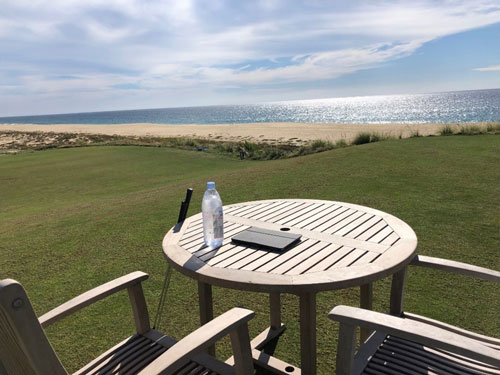Tomorrow, I’ll be sending you something special…
As I write, my team is putting the finishing touches on a special report called The Real Estate Buyer’s Guide to Mexico. And I’ll be sending it to you completely for free, a special benefit to you as an Overseas Dream Home reader.
This report contains key information on buying real estate and living in Mexico. Inside you’ll read about…
- The ins and outs of buying property in Mexico.
- My top seven destination to own real estate there.
- Details on things like closing costs and capital gains taxes.
- Insider tips on spending time in Mexico, like how to open a bank account or bring your car from the States.
- Info on Mexico’s low-cost, high-quality healthcare and easy-to-access residence visas
- Plus much more.
That’s coming tomorrow…
Today I want to give you a preview of the kind of thorough information you’ll be receiving by sharing snapshots from the report. The sections below answer three of the most commonly asked and Googled questions about buying in Mexico.
Let’s start with the most common question…
Can foreigners legally buy and own real estate in Mexico?
The answer is simple. Absolutely. Yes!
Foreigners can own property in Mexico. It’s perfectly legal. And the process is well-established and easy.
There is a caveat. There is an extra step you have to take to own property within 50 kilometers (31 miles) of the coast, or within 100 kilometers (62 miles) of an international border. This is called the “restricted zone,” and within it you must use a financial instrument to control the land called a fideicomiso, which was created in 1973.
Ownership through a fideicomiso comes with the same rights and responsibilities as Mexican nationals. The difference is that the property title is held within a bank trust—not directly. This is a safe, legal, and extremely common vehicle for foreign ownership in Mexico. I’ve bought using this process many times. And in fact, it can offer several advantages.
In your buyer’s guide report tomorrow, we’ll dig more into the fideicomiso process, how it works, and what those advantages are.
Q: Can the Mexican government confiscate the land of foreigners at any time?
There’s a common misconception that the Mexican government can confiscate the land of foreigners. But that’s simply not true.
The Mexican government cannot just take your land.
There have been cases—such as in Baja California some years ago—when the Mexican government “repossessed” property from foreigners. But when you dig a little deeper, it turns out the property titles didn’t hold up to scrutiny—they were essentially fraudulent.
Yes, these expats were defrauded, but not by the government; the government was simply correcting the fraud, applying the law, and returning the property to the rightful owners.
Cases like these are good reminders that you need a competent, honest lawyer protecting your interests when you buy real estate anywhere in the world…someone who can make sure a property title is legal, clear, and unencumbered.
That way, if there is a problem, you are protected as fully under the law. (Members of my Real Estate Trend Alert group have access to the RETA Rolodex, which includes the attorneys I use to buy in Mexico and other destinations around the world. Learn more here.)
Q: How much are property taxes in Mexico?
The property tax on Mexican real estate is called predial. Compared with property taxes in the U.S., the cost of the predial is quite reasonable.
It is a local tax, so it varies depending on state. In most areas is payable quarterly.
The average is approximately 0.1% of the assessed value of the property at time of sale.
This is just a taster of what you’ll find in our new report, The Real Estate Buyer’s Guide to Mexico.
That report answers many more questions on buying, owning and living in Mexico, addressing topics ranging from capital gains taxes and mortgages to healthcare and visas.
And it will drop in your inbox for free tomorrow.

P.S. If you’re eager to learn more about how a fideicomiso works, a while back the attorney I and many members of my Real Estate Trend Alert group use to buy real estate in Mexico did a video Q&A to answer a number of questions, including what a fideicomiso is. Check out his answer on this topic below…
In this video, the attorney I and many RETA members use to buy real estate in Mexico explains how a fideicomiso works and how much it costs. Click to view at this private link exclusively for Overseas Dream Home readers…



